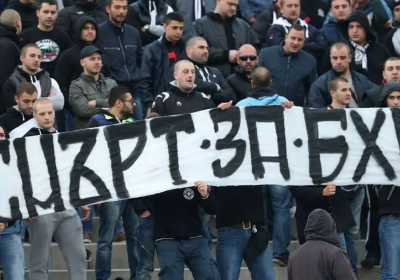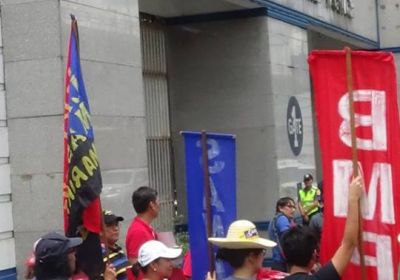
-
 On April 1, police opened fire on indigenous and rural poor protesters who were blocking the highway into Kidapawan in the landlocked province of Cotabato on the island of Mindanao, killing three protesters and injuring at least 116. While no investigation of the police action has yet taken place, 71 protesters remain detained. On April 4 a police spokesperson announced that Cotabato police chief Alexander Tagum would be suspended pending an investigation.
On April 1, police opened fire on indigenous and rural poor protesters who were blocking the highway into Kidapawan in the landlocked province of Cotabato on the island of Mindanao, killing three protesters and injuring at least 116. While no investigation of the police action has yet taken place, 71 protesters remain detained. On April 4 a police spokesperson announced that Cotabato police chief Alexander Tagum would be suspended pending an investigation. -
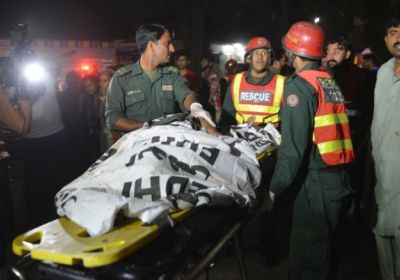
A series of suicide bombings in Brussels on March 22 killed 35 people, including 3 suicide bombers. Less than a week later, on March 27, a similar attack in Lahore, Pakistan, killed more than twice as many people — at least 75.
-
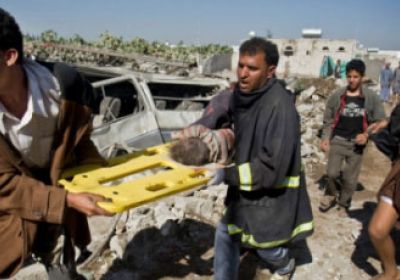 French President Francois Hollande awarded his country's most prestigious award, the Legion of Honour, to Saudi Crown Prince Mohammed bin Nayef on March 4 for “countering extremism and fighting terrorism,” the Saudi Press Agency reported. This understandably received criticism from Human Rights Watch, but its grisly irony passed was largely shrugged off by the Western media and political establishment. The HRW statement referenced Saudi Arabia's appalling human rights record. But it did not mention the year-long Saudi-led air war in neighbouring Yemen that has killed thousands.
French President Francois Hollande awarded his country's most prestigious award, the Legion of Honour, to Saudi Crown Prince Mohammed bin Nayef on March 4 for “countering extremism and fighting terrorism,” the Saudi Press Agency reported. This understandably received criticism from Human Rights Watch, but its grisly irony passed was largely shrugged off by the Western media and political establishment. The HRW statement referenced Saudi Arabia's appalling human rights record. But it did not mention the year-long Saudi-led air war in neighbouring Yemen that has killed thousands. -
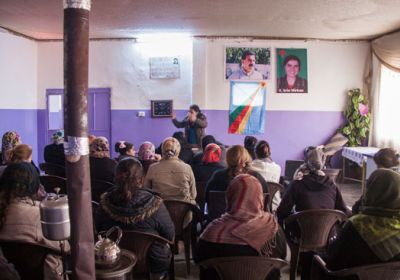 A “cessation of hostilities” in Syria, sponsored by the United States and Russia, came into force on February 27. Only some of the internal and foreign participants in Syria's multi-sided conflicts signed on. The air wars that the US and Russia are waging in Syria are both officially directed against ISIS. But in reality, Russia is keen to protect its ally, the dictator Bashar al-Assad, while the US and its regional allies, Saudi Arabia, Qatar and Turkey, have given money, weapons and logistical and diplomatic support to his opponents since the civil war began in 2011.
A “cessation of hostilities” in Syria, sponsored by the United States and Russia, came into force on February 27. Only some of the internal and foreign participants in Syria's multi-sided conflicts signed on. The air wars that the US and Russia are waging in Syria are both officially directed against ISIS. But in reality, Russia is keen to protect its ally, the dictator Bashar al-Assad, while the US and its regional allies, Saudi Arabia, Qatar and Turkey, have given money, weapons and logistical and diplomatic support to his opponents since the civil war began in 2011. -
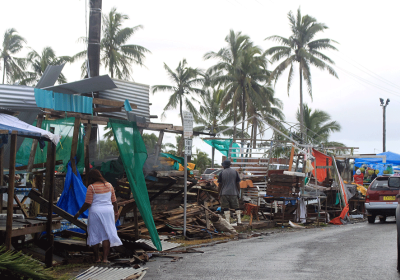 Severe Tropical Cyclone Winston, the Category 5 storm that slammed into Fiji on February 20, was the strongest storm ever to make landfall in the Southern Hemisphere and the second strongest ever in the world, with wind speeds approaching 300 kilometres an hour. At least 44 people were killed, and thousands left homeless, deprived of livelihood and at risk of water- and mosquito-borne diseases.
Severe Tropical Cyclone Winston, the Category 5 storm that slammed into Fiji on February 20, was the strongest storm ever to make landfall in the Southern Hemisphere and the second strongest ever in the world, with wind speeds approaching 300 kilometres an hour. At least 44 people were killed, and thousands left homeless, deprived of livelihood and at risk of water- and mosquito-borne diseases. -
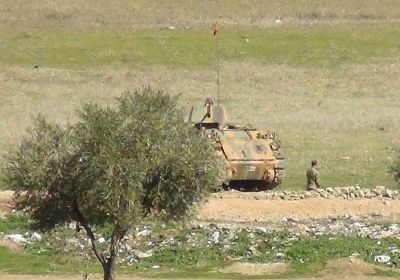
Russian Prime Minister Dmitri Medvedev said in an interview with German newspaper Handelsblatt on February 11 that a threatened ground invasion of Syria by Western allies Turkey and possibly Saudi Arabia would lead to a “new world war”. On February 18, Hawar News Agency reported that “dozens” of Turkish armoured vehicles had advanced 200 metres across the Syrian border.
-
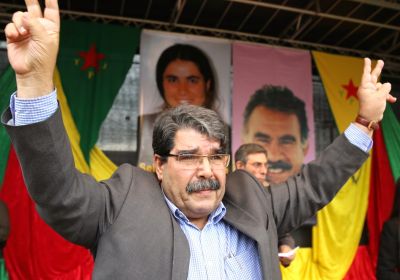 Indirect internationally-brokered peace talks in Geneva between the Syrian regime of Bashar al-Assad and a Saudi-backed coalition of some opposition groups were suspended on February 3 — just two days after they started. Associated Press said that day that “neither the government nor the opposition even acknowledged that the negotiations had officially begun”. Inside Syria, meanwhile, fighting intensified and the humanitarian situation deteriorated. Advances by government forces, backed by Russian air strikes, were the apparent cause for the talks’ collapse.
Indirect internationally-brokered peace talks in Geneva between the Syrian regime of Bashar al-Assad and a Saudi-backed coalition of some opposition groups were suspended on February 3 — just two days after they started. Associated Press said that day that “neither the government nor the opposition even acknowledged that the negotiations had officially begun”. Inside Syria, meanwhile, fighting intensified and the humanitarian situation deteriorated. Advances by government forces, backed by Russian air strikes, were the apparent cause for the talks’ collapse. -
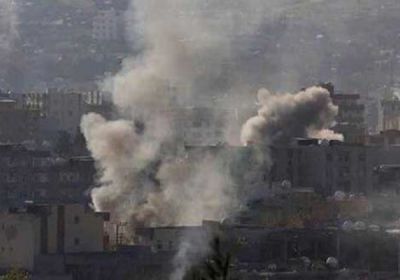 Turkey is rapidly descending into civil war as the government of President Recep Tayyip Erdoğan deepens its offensive against the Kurdish population, left-wing opposition parties, journalists and academics. The Turkish government says it is fighting the armed forces of the left-wing Kurdistan Workers Party (PKK), with which the government terminated peace talks last year. But the brunt of the state's violence has been directed against civilians.
Turkey is rapidly descending into civil war as the government of President Recep Tayyip Erdoğan deepens its offensive against the Kurdish population, left-wing opposition parties, journalists and academics. The Turkish government says it is fighting the armed forces of the left-wing Kurdistan Workers Party (PKK), with which the government terminated peace talks last year. But the brunt of the state's violence has been directed against civilians. -
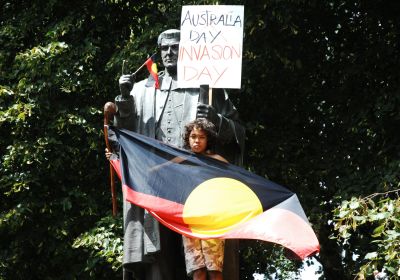 Every year it becomes harder to ignore official Australia's celebrations of nationalism. For weeks, supermarket aisles have been given over to garish displays of things to buy for Australia Day on January 26: Australian flags and hats, stubby holders and thongs displaying Australian flags. None of it would look out of place at a Reclaim Australia rally. And then there is that ad for lamb featuring popular SBS broadcaster Lee Lin Chin. It is tongue-in-cheek, for sure, showing a military operation to enforce Australians worldwide to barbecue lamb for Australia Day.
Every year it becomes harder to ignore official Australia's celebrations of nationalism. For weeks, supermarket aisles have been given over to garish displays of things to buy for Australia Day on January 26: Australian flags and hats, stubby holders and thongs displaying Australian flags. None of it would look out of place at a Reclaim Australia rally. And then there is that ad for lamb featuring popular SBS broadcaster Lee Lin Chin. It is tongue-in-cheek, for sure, showing a military operation to enforce Australians worldwide to barbecue lamb for Australia Day. -
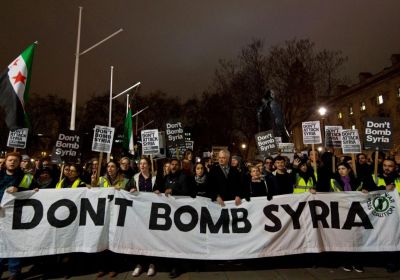 British parliament sat late into the night on December 2 before eventually voting up Prime Minister David Cameron's proposal to join the US-led air war in Syria. Opposition Labour Party leader and veteran anti-war activist Jeremy Corbyn argued strongly against bombing Syria, as did protesters outside parliament. However, many right-wing Labour MPs supported the government.
British parliament sat late into the night on December 2 before eventually voting up Prime Minister David Cameron's proposal to join the US-led air war in Syria. Opposition Labour Party leader and veteran anti-war activist Jeremy Corbyn argued strongly against bombing Syria, as did protesters outside parliament. However, many right-wing Labour MPs supported the government. -
-
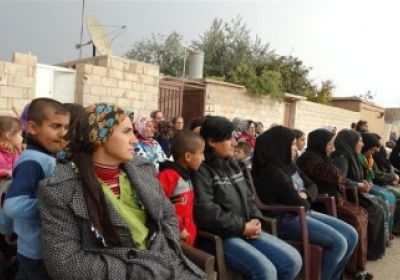
Syria can seem an endless black hole of misery. But in the northern, largely Kurdish region of Rojava, it is also the scene of a profoundly democratic and humanist revolution, which places the rights of ethnic minorities and women's liberation at its centre.
